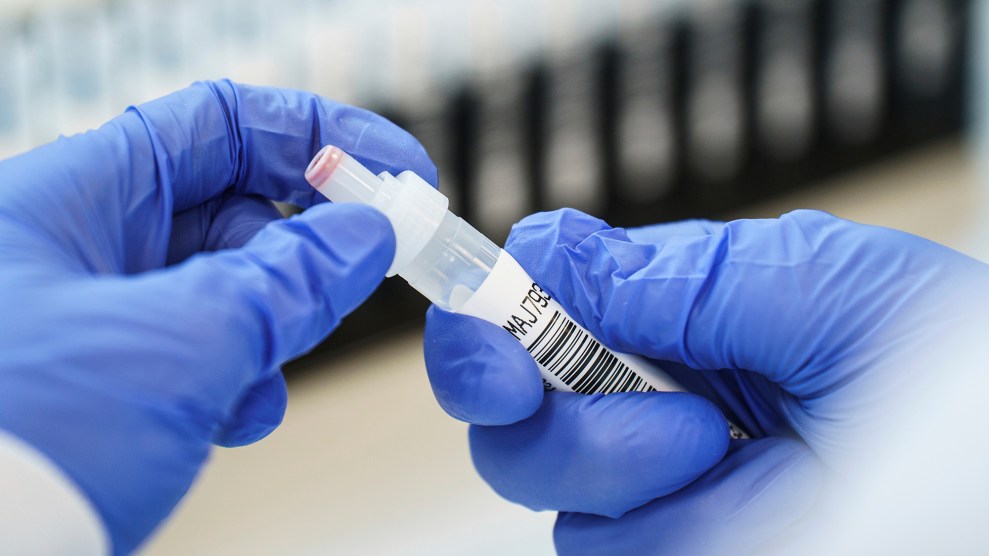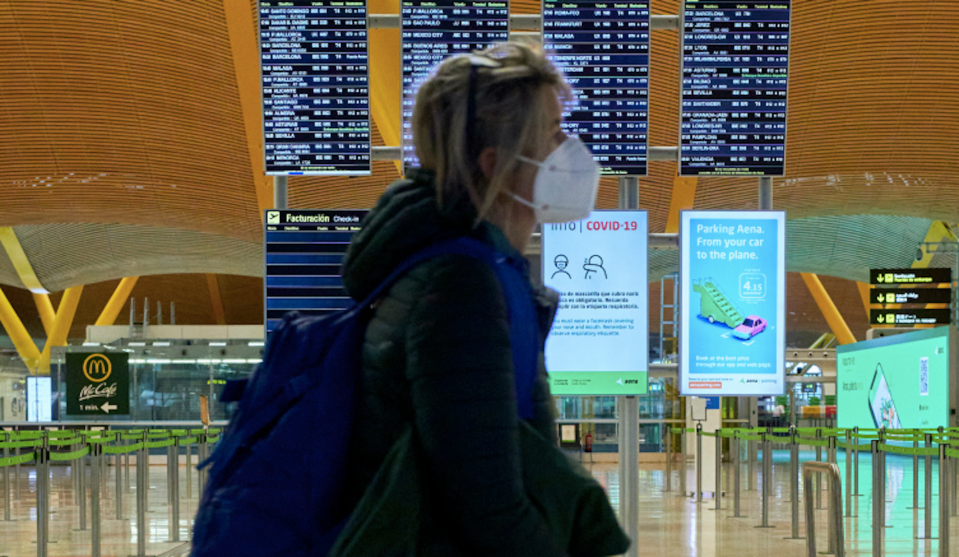
Andreas Arnold/AP Images
In mid-January, the Centers for Disease Control and Prevention warned that a coronavirus variant first identified in the United Kingdom was likely going to, as the New York Times put it at the time, “lead to a wrenching surge in cases and deaths that would further burden overwhelmed hospitals.”
A new study, published on Sunday by a team of scientists from labs across the country, including the Scripps Research Institute, ahead of full peer review, confirms that dire prediction. The variant, known as B.1.1.7, is “spreading rapidly in the United States, doubling roughly every 10 days,” the Times reported Sunday, with a transmission rate 30-to-40 percent higher than more common strains. In a matter of weeks, this variant could be the predominant domestic variant, the research suggests.
“There could indeed be a very serious situation developing in a matter of months or weeks,” Nicholas Davies, an epidemiologist at the London School of Hygiene and Tropical Medicine, who was not part of the research team, told the newspaper.
The news comes as communities across the country—and around the world—continue to grapple with spotty vaccine availability and distribution. President Joe Biden has increased his goal for daily vaccinations to 1.5 million (up from 1 million) and overall dosing numbers are increasing. Still, the current pace means that it won’t be until late summer before a sufficient majority of Americans will have been vaccinated, leaving a troubling window for the B.1.1.7 variant, and others, to circulate widely.
“If these data are representative,” Davies told the Times, “there may be a limited time to act.”


















